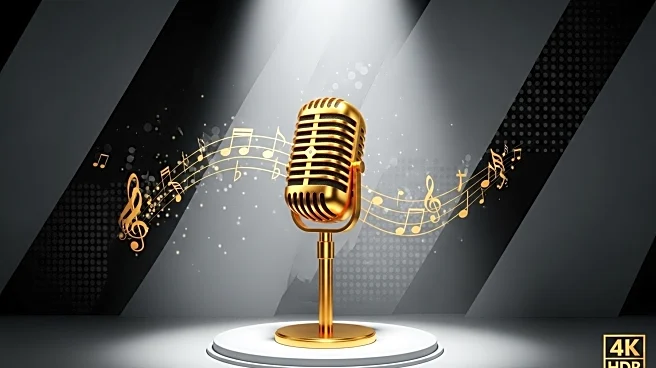What's Happening?
A lyric from a newly released album has ignited a cultural debate, transforming a podcast remark into a mainstream controversy. The phrase 'girl-bossed too close to the sun,' originally stated by conservative commentator Candace Owens in a podcast, was incorporated into a song by a popular singer. The album, launched on October 3, 2025, has achieved record sales and streaming numbers, propelling the lyric into public discourse. The phrase, initially used as analysis, has been interpreted in various ways, with some viewing it as a clever critique and others as a derogatory remark. The debate highlights the power of music to amplify language and blur the intent behind words.
Why It's Important?
The controversy underscores the influence of media and music in shaping public narratives and cultural perceptions. The lyric's widespread attention demonstrates how a single phrase can shift from a niche commentary to a global talking point, affecting both the artist and the commentator involved. For artists, this event illustrates the potential for lyrics to reframe disputes and influence public opinion. For commentators, it highlights the ability of podcast lines to migrate into mainstream art, potentially altering their original context and meaning. The debate also raises questions about artistic license and the role of media in interpreting and disseminating cultural critiques.
What's Next?
The ongoing discussion is likely to continue as media outlets and social platforms dissect the implications of the lyric. Fans and critics are expected to engage in debates over the interpretation and impact of the phrase, with potential follow-up tracks or statements from the artist and commentator. The controversy may lead to further exploration of the relationship between media commentary and artistic expression, as well as the ethical considerations of using public figures' remarks in creative works. Observers will be watching for any legal or cultural ramifications that may arise from the debate.
Beyond the Headlines
The incident highlights broader issues of cultural appropriation and the ethics of using public commentary in artistic works. It raises questions about the boundaries between private analysis and public art, and the responsibilities of artists and commentators in shaping public discourse. The debate may contribute to a larger conversation about the role of media in influencing cultural narratives and the potential for lyrics to serve as shorthand for complex social issues.











